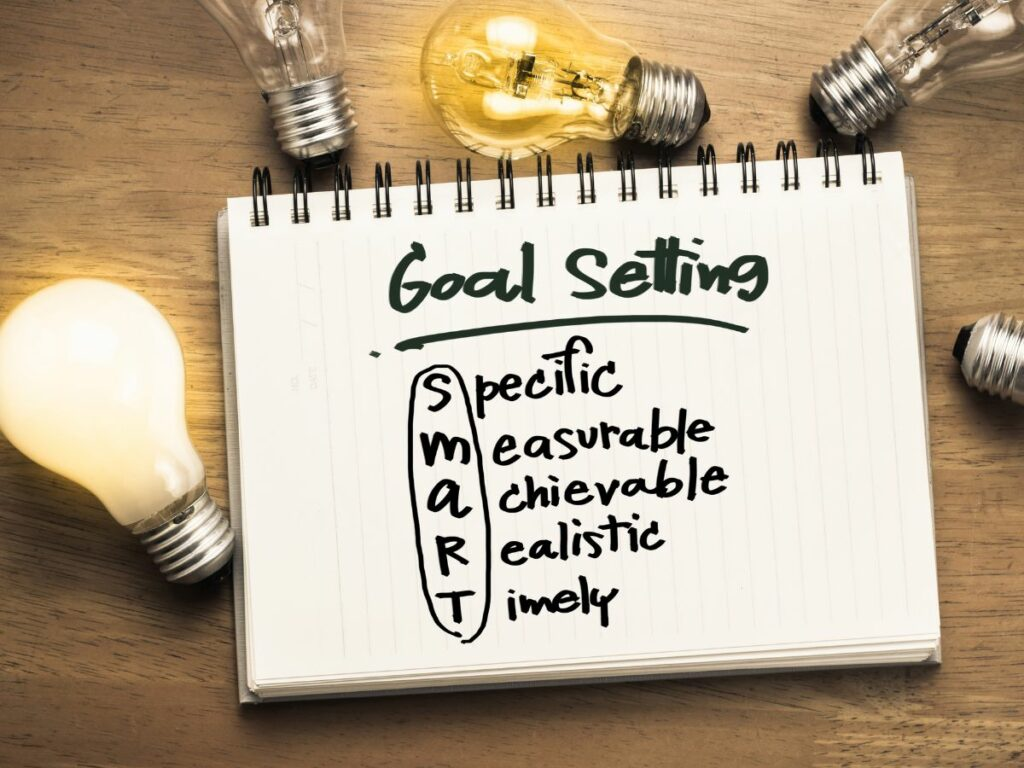Business strategy is a critical element of any successful organization. A business strategist ensures a company's methods align with its goals and objectives. Suppose you are interested in becoming a business strategist. In that case, there are several responsibilities you need to be aware of, along with a set of essential skills and strategies that can help you achieve success in this field.
Understanding the Role of a Business Strategist
Before we dive into the specific strategies and skills needed to become a thriving business strategist, it's essential to understand the role of a strategist in an organization. A business strategist analyzes various aspects of a company's operations, such as its market position, target audience, and competition. They also evaluate different growth opportunities and provide recommendations to the management team on which strategies to pursue.
However, being a business strategist is not just about analyzing data and making recommendations. It's about understanding the company's vision and mission and aligning all strategies with those goals. A successful business strategist can communicate these goals to all levels of the organization, from the CEO to entry-level employees.
Key Responsibilities of a Business Strategist
The primary responsibility of a business strategist is to help a company achieve its goals and objectives by developing and implementing effective business systems. Some of the specific responsibilities of a business strategist include:
- Conducting market research to identify trends, opportunities, and threats
- Analyzing the company's strengths and weaknesses to develop a comprehensive business plan
- Developing strategies and tactics for achieving long-term growth and profitability
- Providing guidance and support to the management team in implementing strategies
- Monitoring changes in the industry and the market to ensure the company maintains a competitive edge
It's crucial for a business strategist to not only develop effective strategies but also to ensure that they are implemented successfully. This involves working closely with the management team to provide guidance and support throughout the implementation process.
One of the most critical skill sets a strategist can hone is the ability to iterate those strategies throughout the implementation process to maintain agility. The ability to have a plan in place but 2-3 alternatives that can quickly be set into action should the original plan not head in the direction expected.
The Importance of Strategic Thinking in Business
One of the core competencies of a business strategist is strategic thinking. Strategic thinking involves taking a broad, long-term view of the company's goals and identifying opportunities for growth and improvement. Strategic thinkers are skilled at evaluating complex situations, anticipating potential outcomes, and developing plans to achieve their objectives.
However, strategic thinking is not just limited to business strategists. It's a skill that anyone in the organization can develop. By encouraging all employees to think strategically, a company can foster a culture of innovation and continuous improvement.
Furthermore, strategic thinking is not just about developing plans for the future. It's also about adapting to changes in the market and the industry. A company that can think strategically and adapt quickly will likely succeed in the long run.
A successful strategist is critical in the dynamic business world, guiding the organization toward its goals. This role requires a unique blend of analytical skills, strategic foresight, and excellent communication abilities. These are the critical components of effective strategy formulation and execution, which can drive sustained growth and success for an organization.
Essential Skills for a Successful Business Strategist
To succeed in business strategy, you must possess various essential skills to help you effectively analyze and develop strategies. These skills include:
Analytical and Problem-Solving Skills
Business strategists must have strong analytical and problem-solving skills to evaluate complex situations and identify solutions. They must be able to collect and analyze data, identify trends, and assess potential outcomes to make informed decisions.
For example, a successful business strategist may use data analysis tools to identify patterns in customer behavior or market trends. They may also use critical thinking skills to evaluate strategic options' potential risks and benefits.
Communication and Presentation Skills
Effective communication is essential for business strategy consultants to build relationships and collaborate with other team members and stakeholders. They must communicate their analysis, findings, and recommendations to colleagues, executives, and clients in written and oral formats.
For instance, a skilled business strategist may use visual aids such as graphs, charts, and diagrams to present complex data clearly and concisely. They may also use persuasive language and storytelling techniques to engage their audience and convey the importance of their strategic recommendations.
Adaptability and Flexibility
Business strategy is ever-changing, and adapting to new technologies, trends, and market conditions is crucial. Successful business strategists must be flexible and adaptable, able to pivot their strategies to achieve their goals.
For example, a business strategist may need to adjust their marketing strategy in response to a new competitor entering the market or a sudden shift in consumer preferences. They must quickly analyze the situation and develop a new strategy that aligns with their organization's goals and objectives.
Leadership and Teamwork
Business strategists must be adept at leading and working within teams. They should be able to motivate and inspire others, delegate responsibilities, and collaborate effectively with team members to achieve shared goals and objectives.
For instance, a successful business strategist may use their leadership skills to build a strong and cohesive team that is focused on achieving the organization's strategic goals. They may also use their teamwork skills to collaborate with other departments and stakeholders to ensure everyone is aligned and working towards the same objectives.
Overall, possessing these essential skills can help business strategists succeed in their roles and positively impact their organization's growth and success.

Proven Strategies for Achieving Success as a Business Strategist
Being a business strategist is a challenging but rewarding career path. It requires a deep understanding of the market, consumer behavior, and industry trends. To succeed, business strategists must develop effective strategies and tactics that align with the company's goals and vision. In this article, we'll explore some proven strategies for achieving success as a business strategist.
Setting Clear Goals and Objectives
One of the most important strategies for achieving success as a business strategist is setting clear, measurable goals and objectives. By defining what success looks like, business strategists can develop strategies and tactics that align with their goals. This involves working closely with company leaders and stakeholders to understand their vision and objectives. Clear goals and objectives help guide decision-making and ensure everyone achieves the same end goal.
For example, if a company aims to increase revenue by 20% in the next year, a business strategist can develop strategies and tactics that align with this goal. This might involve identifying new market opportunities, developing new products or services, or implementing cost-cutting measures to increase profitability.
Conducting Thorough Market Research
To develop effective strategies, business strategists need to understand the market they're operating in sincerely. This involves thoroughly researching industry trends, consumer behavior, and competitor activities. By understanding the market, business strategists can identify opportunities for growth and develop strategies that give their company a competitive advantage.
Market research should include both quantitative and qualitative data. Quantitative data provides insights into market trends and consumer behavior, while qualitative data helps to understand consumer attitudes and preferences. By combining both types of data, business strategists can develop a more comprehensive understanding of the market and develop strategies that resonate with their target audience.
Developing a Comprehensive Business Plan
A comprehensive business plan serves as a guide for achieving a company's goals. Business strategists should develop a comprehensive plan outlining the company's vision, goals, strategies, and tactics to succeed. The plan should be reviewed and updated regularly to remain relevant and aligned with the company's objectives.
A comprehensive business plan should include a market analysis, competitor analysis, SWOT analysis, and a detailed marketing plan. It should also include financial projections and a timeline for achieving key milestones. A well-developed business plan helps to ensure that everyone in the organization is working towards the same goals and objectives.

Implementing Effective Marketing Strategies
Marketing is critical for the success of any organization. Business strategists should devise effective marketing strategies to help the company reach its target audience and promote its products or services. This involves understanding the target audience and developing messaging and creativity that resonates with them.
Effective marketing strategies should include a mix of traditional and digital marketing tactics. Traditional marketing tactics might include print advertising, direct mail, and events, while digital marketing tactics might include social media advertising, email marketing, and search engine optimization. By developing a comprehensive marketing plan, business strategists can ensure that they're effectively reaching the target audience and promoting the company's products or services.
Continuously Monitoring and Adapting to Changes
The business landscape is constantly changing, and business strategists should be able to monitor and adapt to changing market conditions and opportunities. A successful business strategist should closely monitor market trends and changes, adjust strategies as necessary, and remain proactive in seeking growth opportunities.
Monitoring and adapting to changes requires ongoing market research and analysis. Business strategists should stay up-to-date on industry trends, competitor activities, and consumer behavior. By doing so, they can identify new opportunities for growth and develop strategies that give their company a competitive advantage.
In conclusion, being a successful business strategist requires a deep understanding of the market, consumer behavior, and industry trends. By setting clear goals and objectives, conducting thorough market research, developing a comprehensive business plan, implementing effective marketing strategies, and continuously monitoring and adapting to changes, business strategists can help their companies succeed.

Building a Strong Professional Network
Networking Tips for Business Strategists
Networking is critical to building a successful career as a business strategist. Attending industry events, conferences, and networking forums can help you meet new connections and stay up-to-date with industry trends and innovations.
Leveraging Social Media for Networking
Social media platforms like LinkedIn and Twitter can also be valuable tools for business strategists looking to build their professional network. You can expand your reach and build new connections by actively engaging with other professionals in your field, sharing your insights and thought leadership, and commenting on others' posts.
Attending Industry Events and Conferences
Attending relevant industry conferences and events is an excellent way to network and gain new insights and perspectives on your industry. It's also an opportunity to meet new people, build relationships with potential partners or clients, and stay up-to-date with emerging trends and innovations.
Becoming a successful business strategist takes time, effort, and dedication. By mastering the essential skills and strategies outlined in this article, you can position yourself for success in this exciting and rewarding field.
If you're a business owner looking to work with a business strategist, book a call with us!



